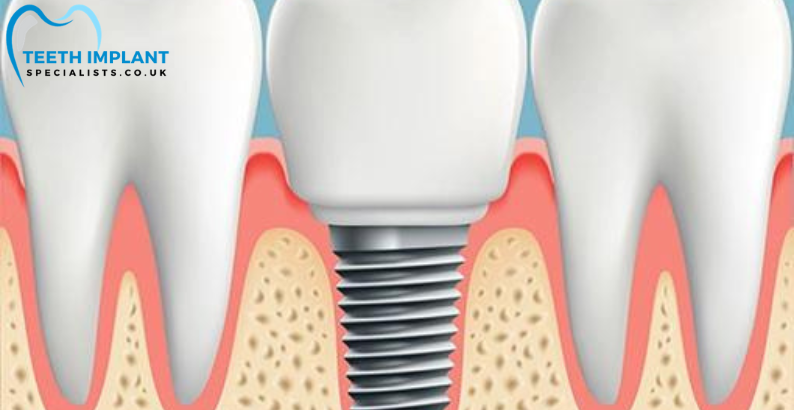In the landscape of modern dentistry, dental implants stand as a beacon of hope for millions of individuals seeking effective solutions for tooth loss. In the United Kingdom, the prevalence of dental implants has surged, offering patients a reliable and long-lasting option to restore their smiles and oral health. This article delves into the realm of dental implants in the UK, exploring their benefits, procedures, advancements, and their transformative impact on patients’ lives.
Understanding Dental Implants:
Dental implants represent a revolutionary approach to tooth replacement, mimicking the natural structure and function of missing teeth. Composed of biocompatible materials such as titanium, implants are surgically inserted into the jawbone, where they fuse with the surrounding bone tissue through a process called osseointegration. This integration provides a stable foundation for prosthetic teeth, ensuring durability, stability, and functionality comparable to natural teeth.
The Advantages of Dental Implants:
One of the primary advantages of dental implants is their ability to restore not only the aesthetics but also the functionality of a natural smile. Unlike traditional dentures or bridges, implants offer a permanent solution that eliminates issues such as slipping, discomfort, and dietary restrictions. Patients can enjoy improved chewing efficiency, speech clarity, and overall oral health, thereby enhancing their quality of life and self-confidence.
Furthermore, dental implants promote long-term oral health by preventing bone loss and preserving the integrity of the jawbone structure. This proactive approach to tooth replacement helps maintain facial contours and prevents adjacent teeth from shifting, reducing the risk of further dental complications in the future.
The Procedure:
The journey to obtaining dental implants typically begins with a comprehensive evaluation and treatment planning process conducted by a qualified dental professional. This involves assessing the patient’s oral health, bone density, and treatment goals to determine candidacy for implant placement.
The surgical placement of dental implants is performed under local anesthesia, ensuring patient comfort throughout the procedure. Using advanced techniques and precision instruments, the implant is carefully positioned within the jawbone, followed by a healing period during which osseointegration occurs.
Once the implant has integrated successfully, an abutment is attached to the implant fixture, serving as a connector between the implant and the prosthetic tooth or crown. Customized prosthetic teeth, crafted to match the shape, size, and color of natural teeth, are then securely attached to the abutments, completing the restoration process.
Advancements in Dental Implant Technology:
In recent years, significant advancements in dental implant technology have further enhanced the effectiveness and predictability of implant procedures. Innovations such as computer-guided implant placement, three-dimensional imaging, and CAD/CAM technology have revolutionized treatment planning, allowing for greater precision, efficiency, and customization.
Moreover, the development of implant materials and surface coatings has improved osseointegration rates and reduced healing times, enabling patients to achieve optimal outcomes with fewer complications. These advancements continue to push the boundaries of implant dentistry, opening new possibilities for patients with diverse dental needs.
The Cost Consideration:
While dental implants offer unparalleled benefits, they are often perceived as a significant financial investment. The cost of dental implant treatment in the UK varies depending on factors such as the number of implants required, the complexity of the case, and the location of the dental practice.
Despite the initial expense, many patients view dental implants as a worthwhile investment in their long-term oral health and quality of life. In addition to restoring function and aesthetics, implants offer durability and longevity, potentially reducing the need for future dental interventions and associated costs.
The Impact on Patients:
For individuals grappling with the physical and emotional toll of tooth loss, dental implants represent more than just a dental procedure – they signify a renewed sense of confidence, comfort, and self-esteem. The ability to eat, speak, and smile with ease restores a sense of normalcy and vitality to patients’ lives, empowering them to embrace social interactions and pursue their passions without hesitation.
Furthermore, dental implants transcend mere tooth replacement; they embody a commitment to holistic oral health and well-being. By addressing the underlying causes of tooth loss and preserving the integrity of the oral structures, implants offer patients a second chance at optimal oral health and a brighter, more vibrant future.
Conclusion:
In conclusion, dental implants have emerged as a transformative solution for tooth loss, reshaping the landscape of modern dentistry in the United Kingdom and beyond. Through innovation, precision, and a steadfast commitment to patient care, dental professionals continue to harness the power of implants to restore smiles, rebuild confidence, and improve lives.
As the demand for dental implants continues to grow, so too does the potential to empower individuals to reclaim their oral health and vitality. In the journey towards a healthier, more radiant smile, dental implants stand as beacons of hope, guiding patients towards a future filled with laughter, joy, and boundless possibilities.
FAQs
Q. What are dental implants?
A. Dental implants are artificial tooth roots made of biocompatible materials like titanium. They are surgically implanted into the jawbone to provide a stable foundation for replacement teeth.
Q. Who is a candidate for dental implants?
A. Candidates for dental implants should have good oral health, sufficient bone density in the jaw, and be free of conditions that may interfere with the healing process, such as uncontrolled diabetes or gum disease.
Q. How long does the dental implant process take?
A. The dental implant process typically involves multiple stages and can take several months to complete. This includes initial evaluation, implant placement surgery, osseointegration (integration of the implant with the jawbone), and placement of the final restoration.
Q. Are dental implants painful?
A. Dental implant surgery is performed under local anesthesia, ensuring patients are comfortable during the procedure. Some discomfort and mild swelling may occur afterward, but this can usually be managed with over-the-counter pain medications.
Q. How long do dental implants last?
A. With proper care and maintenance, dental implants can last a lifetime. Regular dental check-ups, good oral hygiene practices, and avoiding habits like smoking can help prolong the lifespan of dental implants.

